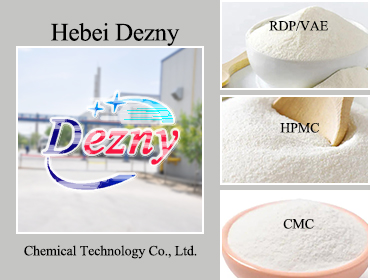
 2024-08-06- readings
2024-08-06- readingsHydroxypropyl Methylcellulose (HPMC) has a wide range of applications in the field of construction chemicals, especially in tile adhesives and gypsum powder. This article will introduce in detail the chemical properties, mechanism of action, specific applications in tile adhesives and gypsum powder, and its performance advantages of HPMC, in order to provide a comprehensive reference for professionals in related fields.
1. Chemical properties of hydroxypropyl methylcellulose
HPMC is a non-ionic cellulose ether obtained by methylation and hydroxypropylation of natural cellulose. Its chemical structure is mainly composed of a cellulose backbone and uniformly distributed methyl and hydroxypropyl substituents. The specific characteristics are as follows:
1. **Solubility**: HPMC has good water solubility and can be evenly dissolved in cold and hot water to form a transparent or milky colloidal solution.
2. **Viscosity**: HPMC solution has good viscosity and rheology, and the viscosity range can be adjusted according to different molecular weights and degrees of substitution.
3. **Stability**: HPMC has excellent chemical stability, thermal stability and pH stability, and can remain stable in a wide pH range.
4. **Biocompatibility**: HPMC has good biocompatibility and low allergenicity, and is suitable for use in various construction chemicals.
## 2. Application of Hydroxypropyl Methylcellulose in Tile Adhesives
### 1. Thickening and Water Retention
One of the most important functions of HPMC in tile adhesives is thickening and water retention. Thickening improves the construction performance of the adhesive, making it suitable for workability and anti-sagging, ensuring that tiles are not easy to slip during vertical construction. Water retention prolongs the hydration time of cement, promotes the full hydration of cement, and improves the bonding strength and durability.
### 2. Improve construction performance
HPMC can significantly improve the construction performance of tile adhesives, including workability, thixotropy and anti-sagging. The addition of HPMC makes tile adhesives have good operability during construction, reduces construction difficulty, and improves construction efficiency.
### 3. Improve bonding strength
By increasing the cohesion and adhesion of the adhesive, HPMC can significantly improve the bonding strength between the tile and the substrate, ensure the construction quality, and reduce the risk of tile falling off.
### 4. Enhance durability
HPMC can improve the flexibility and crack resistance of the adhesive, enhance its adaptability to environmental changes (such as temperature and humidity changes), and extend the service life of the tile adhesive.
## 3. Application of Hydroxypropyl Methylcellulose in Gypsum Powder
### 1. Thickening and Water Retention
HPMC also has thickening and water retention effects in gypsum powder. The thickening effect makes the gypsum powder have suitable viscosity and fluidity when used, which is convenient for construction and application. The water retention effect ensures the uniform hardening of the gypsum and prevents cracking and strength loss caused by excessive water loss.
### 2. Improve construction performance
HPMC can improve the construction performance of gypsum powder, including extending the operability time, improving workability and reducing sagging. Its water retention effect can also reduce the construction difficulty caused by water loss during construction, and improve construction efficiency and quality.
### 3. Enhanced bonding
HPMC can improve the bonding between gypsum powder and the substrate, ensure the adhesion and durability of gypsum powder after use, and reduce the risk of falling off and cracking.
### 4. Improve surface finish
By adjusting the fluidity and self-leveling properties of gypsum powder, HPMC can improve the surface finish of gypsum coating, reduce surface defects, and improve the decorative effect.
## 4. Performance advantages of HPMC in tile adhesives and gypsum powder
### 1. Excellent water retention
HPMC has excellent water retention, which can effectively prolong the hydration time of cement and gypsum, promote its full hydration, and improve the strength and durability of the material.
### 2. Good thickening and thixotropy
The thickening and thixotropy of HPMC make tile adhesives and gypsum powder have good operating performance during construction, ensuring the stability of the material in vertical and horizontal construction.
### 3. Improve bond strength
By improving the cohesion and adhesion of materials, HPMC significantly improves the bond strength of tile adhesives and gypsum powder, ensuring construction quality and service life.
### 4. Improve construction performance
HPMC can improve the workability, fluidity and anti-sagging of materials, reduce construction difficulty, and improve construction efficiency and quality.
### 5. Enhance durability
HPMC improves the flexibility and crack resistance of materials, enhances their adaptability to environmental changes, and extends the service life of materials.
## V. Conclusion
As a high-performance construction chemical, hydroxypropyl methylcellulose (HPMC) has significant performance advantages in the application of tile adhesives and gypsum powder. It significantly improves the construction performance and service life of tile adhesives and gypsum powder through various mechanisms such as thickening, water retention, improving bond strength and improving construction performance. With the continuous development of construction technology and the continuous improvement of construction material performance requirements, HPMC will play a more important role in the field of construction chemicals and provide strong support for the development of the construction industry.